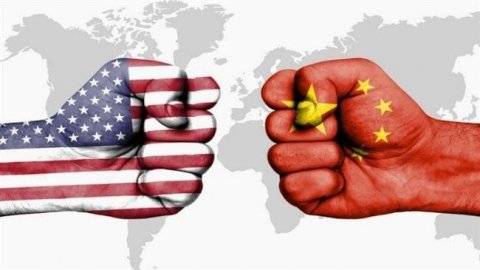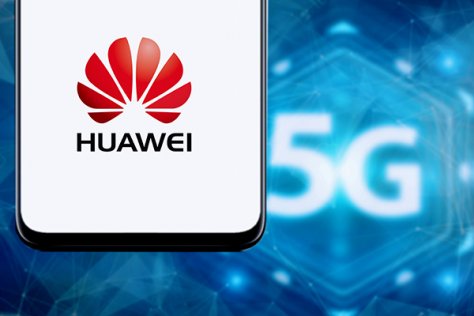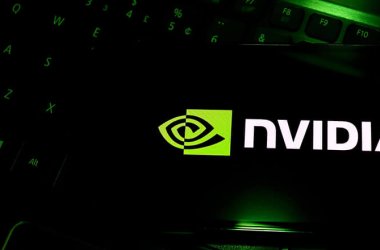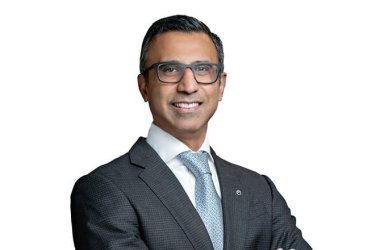Tim Taylor QC, Managing Partner at King & Wood Mallesons Dubai, has penned a forensically in-depth op-ed on the rivalry between the United States and China, following the report commissioned by The National Security Commission on Artificial Intelligence (NSCAI) in March 2021.

The battle for tech supremacy between Washington and Beijing is being billed by many political analysts and economists as the new Cold War, with both global superpowers pinning their hopes on securing dominance and control on whether or not they can gain the upper hand in AI, biotechnology and quantum computing.
In a superb, and extremely comprehensive overview on the NSCAI report, Taylor gives his views on its findings and most importantly of all, what it all actually means!
INTRODUCTION:
A perceived common threat tends to bridge internal divisions, and rivalry between America and China is becoming a dominant bipartisan theme in US politics, with an emerging consensus about how to respond.
The National Security Commission on Artificial Intelligence (NSCAI) Final Report published in March 2021 is a call to arms casting AI as holding ‘the secrets which will reorganize the life of the world’ and a ‘dual key’ to prosperity and security.
This is said to expose the Free World’s vulnerability to China’s declared ambition to be global leader in AI, biotechnology, and quantum computing by 2030.
The first part of the Report sets out the threat posed by the AI opportunity and the second part maps how the solution requires the US to win a competition with China to defeat this threat. All of this is framed within a contest of values with the free and democratic world led by the US, set against autocracies, with China foremost amongst them.
NSCAI’s exhortations to America to ‘Defend’ and ‘Win’ stand on two key convictions which the Report states at the outset, as follows.
‘AI is …the quintessential “dual-use” technology. The ability of a machine to perceive, evaluate, and act more quickly and accurately than a human represents a competitive advantage in any field—civilian or military. AI technologies will be a source of enormous power for the companies and countries that harness them.’
For the first time since World War II, America’s technological predominance—the backbone of its economic and military power—is under threat. China possesses the might, talent, and ambition to surpass the United States as the world’s leader in AI in the next decade if current trends do not change.
Simultaneously, AI is deepening the threat posed by cyber-attacks and disinformation campaigns that Russia, China, and others are using to infiltrate our society, steal our data, and interfere in our democracy.’.
These two convictions are expressed as the unshakeable consensus of a bipartisan coalition of the great and the good, drawn from politics, the IT industry, education, procurement, and investment (a new techno-military complex).
They demonstrate a tried and tested rhetorical device with a long history as effective propaganda when applied to mass psychology. You start with the self-evident truth that human ingenuity can be used for good or ill, identify an enemy and then stoke fear: and, voila! reds back under your beds (unless, of course, you pay us to protect you).
As a wake-up call to America, the Report may well serve its avowed purpose of being an equivalent shock to the news of the Soviets beating America into space with Sputnik. This spawned the National Defense Education Act of 1958 to put a man on the moon so as to knock down the Berlin Wall three decades later (or so that version of a similar values narrative goes). 
The core metaphors of the Report’s two halves are Defending and Winning: the language of war. The underlying assumption is that if America does not win the AI arms race, as it has chosen to define it, the world will be subdued by authoritarian rule with individuals stripped of rights and privacy and humankind condemned to a totalitarian dystopia.
- Part I of this piece condenses the key findings of the Report and exposes some of its underlying assumptions.
- Part II suggests an alternative mindset to a potentially self-fulfilling warlike worldview. This alternative is not confined to a zero-sum equation of winners and losers but entails balancing dynamically opposing forces to extract good outcomes.
In this respect, many observers have noted that understanding complex systems such as the AI constellations which the Report describes, calls for a ‘systems view’ of a world where modern science is vindicating ancient insights more generally associated with the East than the West.
Here the core metaphors are not about warfare and conquest but about necessarily co-existent polarities, which no more win or lose than the negative and positive charges of electricity defeat one another.
The notion that China and America may yet continue to coexist in this way seems scarcely to have crossed the minds of the Report’s distinguished authors, and that is a shame.
PART I THE REPORT
AI and its Dependencies
The Report explains how AI works across a constellation of interrelated technologies. HITADA is a handy mnemonic for its key drivers – Hardware, Integration, Talent, Algorithms, Data, and Applications. The hardware backbone needs state-of -the-art microchips and quantum computing capability, with cloud-based data curated by advanced algorithms, speedily networked (where 5G capability is key) and all developed by STEM educated talent.
The US – China Scoreboard
Where China leads is in its unrestrained data acquisition (where Government, not Google, reigns supreme) and equally unrestrained application (e.g., in face recognition technologies, and social credit scoring) as well as in 5G dominance.
The US has the edge in talent acquisition (but cannot match China for volume generation), its superior algorithms and the sophistication of microchips (but with 90% manufactured in East Asia).
Today’s Applications and Tomorrow’s Frontiers: Machines Made Men and Vice Versa?
The Report identifies six areas of current application and five frontiers of development.
Today
1) Natural Language Understanding (NLU)
2) Computer Vision
3) Robotic Process Automation
4) Prediction/forecasting
5) Planning and Optimisation
6) Modelling and Simulation
Tomorrow
1) Novel Learning
2) Advanced Reasoning
3) Artificial General Intelligence
4) AI Human Teaming
5) Edge Computing.
Today’s list of six is fairly self-explanatory, and has a consistent theme of anthropomorphising machines, by getting them to perceive, reason, learn communicate, decide, and act. Thus, the first three can be grouped as mimicking human sense perception and communication, and the last three, that other human activity (which Woody Allen described as making God laugh, when we tell him about it) – i.e., seeking to exert control over our future, by making plans. 
The Holy Grail of trying to get computers to think like humans (but faster and without error) also informs the first three items on the list of tomorrow’s frontiers. Of the last two, AI and human teaming concerns our own co-existence with the machines, whilst Edge Computing looks to process maximal data locally without the innate vulnerabilities of interconnectivity between networked hardware across the Internet of Things, interfacing with data in the Cloud.
The flipside of anthropomorphism i.e., mechanising humans through gene editing and programming biology is a second pervasive potentiality of AI in applied biotechnology.
Seven Pillars of Wisdom X 2 =?
Having won the attention of its readers with the trusted cocktail of fearmongering accompanied by an invitation to be on the right side of a battle between good and evil, the Report erects seven pillars of wisdom under each of its twin towers of ‘Defend’ and ‘Win’.
Defend
1) Build defences against emerging AI enabled threats.
2) Prepare for future warfare.
3) Manage risks associated with AI enabled autonomous weaponry.
4)Transform National intelligence.
5) Scale up digital talent in government.
6) Establish justified confidence in AI systems.
7) Present a democratic model of AI use for national security.
Win
1) Instigate a White House led strategy with a Technology Competitiveness Council, chaired by the Vice President.
2) Win the global talent competition, enacting immigration reform and a new National Defense Education Act (a Sputnik 2.0 moment).
3) Accelerate AI Innovation with non- defence funding of R&D at $32billion p.a. by 2026 and a national AI research infrastructure with cloud computing resources, test beds, open training data and an open knowledge network.
4) Enact comprehensive IP policies and regimes unhindered by legal uncertainties in current US patentability doctrine and eligibility requirements and elevating national security priorities.
5)Build a resilient domestic base for designing and fabricating microelectronics, in order to stay two generations ahead of China in state-of-the-art microelectronics. The US is currently almost entirely reliant on foreign resources for production of cutting-edge semiconductors – the supply chain is at risk without concerted government action.
6) Protect America’s technology advantages with export controls and FDI regulation.
7) Build a favourable international technology order to support an emerging technology coalition for multilateral AI research.
The key takeaway for the tech side of the techno-military complex (disguised as an eighth pillar of wisdom) is that dominance in AI is necessary but insufficient to win without also maintaining dominance in biotechnology, quantum computing, microelectronics, 5G, robotics, autonomous systems (machine learning), additive manufacturing (e.g., 3D printing) and energy storage technology.
The Bikini Factor and Six Hidden Agenda Items
Like a Bikini, the Report reveals stuff that is interesting, but hides (or plays ‘Peekaboo’ with) the stuff that is fascinating. Here we can detect at least six (not especially well) hidden agenda items.
No 1 the ‘Veep Sweep’
Weighing in at 22 years younger than President Biden, it seems a safe bet that Vice President Kamala Harris has a good deal of her career to look forward to either inside and/or outside politics. One of the fundraisers for her election campaign was held in Steve Jobs’ widow’s garden.
It is no secret that Silicon Valley’s access to the Obama White House was something that they could largely only dream of during the Trump interlude, but a quick survey of the biographies of the NSCAI membership indicates that Silicon Valley access to the White House may now be on steroids.
By chairing the proposed White House Technology Competitiveness Council, it looks like all roads in the techno-military complex will lead to the VP: the Kennedys’ fabled Camelot, may be set to be replaced by ‘Kamalot’.
No 2. Chips with Everything
It evidently was not the fruits of some cunning CCP plan that led to Silicon Valley outsourcing almost all of its microelectronics production to East Asia, especially given that the most prolific producer is in Taiwan. On the contrary, this state of affairs was an obvious product of free market global capitalism.
Its joins a list of post-globalisation regrets perhaps more easily redressed than the overall hollowing out of America’s heartlands in a process of Walmartisation and the exodus of manufacturing jobs.
The ensuing dilemma may see America trying to repatriate jobs that will be replaced by robotics wherever they are in a new networked but pan-localised world where production will once again be kept closer to consumers.
Another dilemma is whether to move from mutually assured cyber-destructive interdependence to a firewalled world in which one half doesn’t believe stuff it reads on the web because they know the government control it and the other half tends to believe everything, not realising that they are algorithmically imprisoned with likeminded mis-informants who are far more convincing than free roaming propogandabots.
The weight of current consensus indicates that this ship may have sailed, and the question is becoming how to maintain this cleavage without conflict.
No. 3. Democracy’s Dilemma
When it comes to nuclear armaments and Mutually Assured Destruction, the whole point is to either let your opponents know what you have or bluff them into believing that first resort will be fatal. With Cyberwarfare – it is a question of ‘use it and lose it’ so only the bluffing element is in play, until it is actually deployed, and then the game is up, but not over.
There is a significant element of guesswork concerning hostile capabilities.
We can discern with some degree of certainty that election tinkering is happening, whether by China in Taiwan’s latest election or Russia in America in 2016. The latter prompted a ‘Defend Forward’ strategy being articulated in 2018, which effectively seeks to extend the somewhat discredited Bush Doctrine of pre-emptive self-defence into a Cyber context, where it may be more easily defensible.
We might also like to guess that the US and/or Israel were comparatively successful in arresting Iranian uranium enrichment with a cyber-attack.
Democracy’s dilemma in such areas (and the more so with data privacy generally) is that valuing an open society that does not spy on its own citizens creates a tension between our privacy and our security. This does not trouble autocracies where data access creates opportunities to ensure a compliant citizenry, which they do not hesitate to exploit.
We all know, however, when we are hit by ransomware because we get a cryptocurrency demand. We may then experience the cognitive dissonance of being concerned in equal measure to protect our own data integrity and yet be able to have someone compromise our attacker’s. There are no easy answers here.
No. 4. ‘Guns Don’t Kill People – People Kill People’ and ‘Computers Don’t Kill People, or Do they?’
British comedian, Eddie Izzard’s response to the National Rifle Association’s mantra about people and not guns killing people was the modest observation ‘but guns help’: and that is certainly hard to quarrel with. With the advent of autonomous weaponry, guns do not even need people to help, so how should the world respond?
Alongside, mustard gas and nuclear weapons the spectrum of debate about the use of autonomous weapons will be along the lines of “Not at all, but we might have to have them, just in case. In fact, we might have to have lots in case somebody has more, and we cannot let them get ahead.”.
Of course, a key problem that President Eisenhower had perceived with the military-industrial complex, when he warned the American people of its dangers in his farewell address to the nation in January 1961, is that supply requires demand in a market economy. Manufacturing capability for weapons needs warfare as an outlet, much as cement and steel and chips, need Belt and Road.
The Report’s key prescription to mitigate the risks of autonomous weaponry is multilateral dialogue. This recognises (without actually saying so) that armed cyber-bots (as well as frightening new potentialities for biological warfare) have now joined the company of nuclear and chemical arms amongst the categories of human ingenuity where their destructive potential can only be moderated by a common wish for survival.
No. 5. Our way or the Huawei? The 5G- Whizz
The Report gives some indication (including by recording numbers of 5G patent applications) as to the reasons for the continued US obsession with taking down Huawei.
Whilst the Report suggests that patent proliferation is a misleading indicator of true dominance, there seems to be an industry consensus that Huawei (no doubt championed by its home state) have simply had the effrontery to be a successful, private (and significantly employee owned) business that has produced by far the best 5G kit, having already supplied most of Africa’s 4G network.
There is also a view that it is no coincidence that Huawei’s founder and Chairman’s daughter Meng Wanzhou (who is also Huawei’s finance director) is under house arrest in Canada fighting extradition to the US on what are widely seen as trumped-up charges (pun fully intended).
It is hard to get reliable data on how much or little truth there is in perceptions that Huawei benefitted disproportionately from ‘State Aid’ or that its technologies are any more of a security threat than others that support interconnectivity. 
The spying business being what it is, reliable data as to how much or little truth there is over security concerns is even harder to come by. If America learned anything from the Edward Snowden leaks it should be that businesses may not even know that states have co-opted them for espionage, regardless of whether the government concerned is communist, capitalist or democratically elected.
There is no doubt that US exertion of political muscle is hurting Huawei by causing allies to ban its technology, blocking its access to microelectronics and damaging it in the handsets market where the latest indications are that it is now China’s Xiaomi which has surpassed Samsung and Apple in June 2021 after a 26% month-on-month increase in sales to become the number one smartphone brand in the world for the first time ever.
Overall, the irony of the US-Huawei conflict is that it would appear to be the USA which is using coercive state powers to drive back dominance that Huawei achieved by competition in free markets globally, and in which competitors from Korea and Scandinavia are also ahead of US enterprise in any event.
By constraining Huawei’s access to microelectronics, the US risks encountering the old axiom that what does not kill you makes you stronger and creating a force that is most likely to defeat the US declared ambition to stay two generations ahead in advanced microelectronics.
Despite promoting a ‘rules based international order’ the US distrusts being subject to judgment by international institutions such as the International Court of Justice (ICJ) or International Criminal Court (ICC) and the US ICT industry appears to have been taken by surprise at China’s recent energetic engagement with international standard setting institutions.
In recent years China has scored a hattrick of appointments of heads at the International Standards Organisation (ISO) (Zhang Xiaogang), the International Electrotechnical Commission (IEC) (Yinbao Shiu), and the International Telecommunication Union (ITU) (Houlin Zhao).
The ITU is the UN’s ICT standard setting agency which will be highly instrumental in the outcome of moves to redefine the design of the internet away from the current internet protocol suite TCP/IP (Transmission Control Protocol/Internet Protocol) originally funded by the US Department of Defense.
To understand this highly technical subject sufficiently to appreciate the rival US and China concerns, we need to know that the competing alternatives to TCP/IP, are – in the red corner- DII (Decentralised Internet Infrastructure) championed by Huawei and China and, -in the blue corner- OSI (Open Systems Internet), championed by most of the rest of the world.
TCP/IP operates on joining up trusted access points via ‘dumb pipes’ which can add to hackability issues.
The OSI champions have been industry stakeholders rather than governments and see interoperability as good for business, with end-to-end encryption as a key answer for data security.
The DII, sales pitch is that it addresses security through decentralisation and the use of DLT (Distributed Ledger Technology, of which Blockchain is a subset). But DII exposes the possibility of greater ‘snooping’ access for telco operators and network providers, in the middle ‘layers’ occupied by the ‘dumb pipes’ in the TCP/IP model.
There is plainly room for people of good conscience to disagree about the rights and wrongs of the standards tussle that is going on. But there is a degree of hypocrisy in Silicon Valley (all lobbied up and hand in glove with federal government) accusing Huawei of being in league with China in disregarding a rules based international order when their complaint is that China and Huawei are participating in standard setting processes through recognised international bodies with multilateral membership.
The key concern in the West is that the supposedly decentralised DII ‘Splinternet’ in fact provides greater scope for centralised control.
Nobody, (including the CCP itself) would seriously contend that societal control through curating data access is not a policy goal within the PRC. The real question is whether or not DII winning the day will necessarily produce the CSIS’s dire prognostications for societies elsewhere suffering a ‘stark decline in personal freedoms and an increase in oppression while innovation and competition suffer.
No.6 Patently Wrong: Whose Rule of Law is it anyway?
The Report advocates removing uncertainties from patent law. It does not state to precisely what end, but the assumption must be that legislative change in America tends to favour entrenched interests and that the techno-military complex will wish to serve its own ends.
The last major convulsion in America’s Patent laws was the passage of the America Invents Act in 2011. Proponents argued that reform was needed to quell litigation driven by ‘Patent Trolls’ who invented and manufactured nothing, employed nobody but lawyers, and bought up patents to garner parasitic riches from the manufacturers who were actually doing the invention and creating the jobs to manufacture and sell the products of American ingenuity.
Opponents argued that the reforms (which protected first filers over earliest inventors and allowed vested patents to be invalidated within the US Patent and Trademarks Office (USPTO) by a Patent Trial and Appeal Board (PTAB)) favoured powerful industry incumbents.
A decade later, the US Supreme Court has held that the 250 Administrative Patent Judges (APJs) who had been busy ripping up patents had been unconstitutionally appointed. In a pragmatic fix to avoid a chaotic invalidation of the APJs’ invalidations, the majority held that their handiwork should be reviewable by the Director of the USPTO, a political appointee approved by Congress.
The fact that this fix of handing the last word to an explicitly political appointee amplified the core objection that vested property rights should only be divested by a court of law and not a branch of the executive is vividly illustrated in an excoriating dissent of Justice Gorsuch.
The following passage demonstrates just how completely Silicon Valley’s most powerful incumbents were able to turn the ‘patents graveyard’ of the PTAB to their advantage.
“Here just consider the tale of a patent attorney at one of the world’s largest technology companies who left the company to become an APJ. This private advocate-turned-APJ presided over dozens of IPRs brought by his former company. In those proceedings, the company prevailed in its efforts to cancel patents damaging to its private economic interests 96% of the time.
After six years of work, the APJ decided he had done enough, resigned, and (yes) returned to the company. Without a hint of irony, that company has filed an amicus brief in this case to inform us, as a self-described “frequent user of the IPR process,” about “the benefits of the system.” Brief for Apple Inc. as Amicus Curiae 3. Nor is that the only large technology company to have its attorneys rotate in and out of the PTO to similar effect. See Brief for B. E. Technology, LLC, as Amicus Curiae 17 (discussing a Google attorney).”
PART II THE MISSING VALUES
The Patterning Instinct: A Cultural History of Humanity’s Search for Meaning by Jeremy Lent opens by asking the question why two 15th Century voyages, one undertaken by a Spaniard and the other by a Chinese Muslim had very different impacts on the world.
In 1405 Admiral Zheng departed China with a fleet of three hundred vessels and a crew of twenty-seven thousand men and spent thirty years on a meandering odyssey taking him as far as Africa. Despite the awestruck impact Zheng and his fleet had on the coastal inhabitants, he did nothing to interfere with their lives and the voyage left little enduring impact apart from the occasional surviving shrine erected by locals who took him as a deity.
Lent contrasts Zheng’s low impact voyage with the upheaval brought to the New World in the aftermath of Christopher Columbus’ passage with just ninety men in vessels that could have fitted several times over into one of Zheng’s.
Central to the explanation for these radically different outcomes is an exploration of how the core metaphors in Western and Chinese cultures differ. The Judeo-Christian calculus of man’s dominion over nature and the agricultural and scientific revolutions completing that conquest, created a very different world view from the Chinese quest to live in harmony with a natural order visualised as a constant interplay between Yin and Yang, with the profound symbolic insight that the one is always becoming the other.
Whatever the profundity of that insight it could be an equally profound mistake to imagine that the hardnosed ambitions of the CCP can be automatically assumed to be as benign and low impact on the rest of the world as the voyages of Admiral Zheng.
What is needed, however, is a clear eyed and realistic assessment of why dynamic competition between China and America in developing a constellation of technologies which can have a profoundly beneficial impact on life cannot be mutually beneficial rather than a struggle which one or other must win or lose.
The calls for increased dialogue with friend and foe and talent-targeted immigration made by the Report are welcome to anybody who wishes for a pluralistic open world. But Great Power competition and the reassertion of the nation state are resurgent in a new context, where distributable technology both undermines state monopoly on organised violence and further erodes any clear distinction between peace and war, which has been a defining feature of the 21st century.
A question worth serious attention is whether the Report seeks to add another false binary to earlier equations such as the ‘war on drugs’ and the ‘war on terror’? In particular it is worth dwelling for a moment on the National Security Commission’s own deployment of terror in unanimously affirming ‘the threat posed by cyber-attacks and disinformation campaigns that Russia, China, and others are using to infiltrate our society, steal our data, and interfere in our democracy….’ whilst, scarcely posing the questions such as ‘ why would these feared ‘others’ want to infiltrate our society and interfere in our democracy? who owns data? what is stealing data? and why do we care anyway?
It is important to be clear about which threats are imagined, which are real and which ones are self-fulfilling prophecies engendered by the underlying bellicose assumptions of the Report and its currency of victory or defeat between ‘us’ and ‘them’, the real or imagined ‘others’.
We know why Google gives us stuff for free to get our data, because we are the product, and data is the new oil. Thankfully, Google are not able to define and limit our opportunities in life by awarding social credit in the way that the CCP does. And getting spammed to within an inch of your life by unwanted solicitations for goods and services has been part of the American Dream, since De Tocqueville’s travels.
There are obvious bellicose attractions to the utility of Cyber-attacks to disrupt energy, food and water supplies (or uranium enrichment) as well as for attacking economic interests more generally, without actually having to blow people or things to smithereens. In this arena the old formulae of ‘don’t do it to us and we won’t do it to you’ and ‘trust us, our ‘it’ is much worse than your ‘it’’ are, regrettably still relevant.
The axiom that if you want peace you must prepare for war has long had a purchase on both Chinese and Western thought.
Provided the CCP continues to be successful in its remarkable endeavour to lift a large section of the planet’s population from poverty towards prosperity and maintains the approval of its people, it is much harder to see why China would wish to infiltrate our society, other than to sell us things we want, or visit and live among us.
As for interfering in our elections, one would think that with the current state of democracy in America a lot of effort could be spared by just leaving America to screw up democracy all on its own.
CONCLUSION
The optimistic message of the NSCAI Report which is so easily obscured by it presenting binary choices of victory and defeat and a requirement for good to triumph over evil, is that humankind continues to develop ways to transform life on a positive trajectory.
The core metaphor of scientific materialism has shifted from hardware and clockwork to software and data processing, and even that human/computer analogy is falling short. The linear agency relationship of cause and effect and the brain body dichotomy are giving away across multiple disciplines, from cosmology to particle physics and biology, to a more complex conception of constantly emergent patterns of interrelations. Deciphering these requires mind-numbing computing capacity and speeds, but the benefits of making these patterns work to our advantage are immense.
Distilled to its essentials, the core utility of AI deployed across the constellation of technologies in which it can be applied is to enable humankind to do a better job of extracting meaning from matter and the forces which mediate it. Whether we want to call that conquest or harmony is largely a matter of taste.





